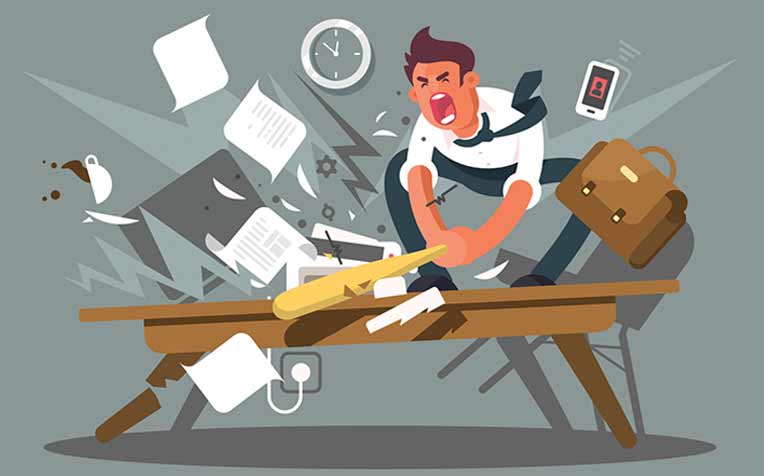
A person's reaction to stress is often determined to a great extent by his or her personality. Psychiatrists from the
Department of Psychiatry at
Singapore General Hospital (SGH), a member of the
SingHealth group, explain. (iStock photo)
Personality and stress
Personality traits reflect the way we habitually think, feel and behave in a given situation. As a result, certain personality traits make a person more susceptible to stress. Such personality traits include:
-
Obsessional personality
Such individuals are often called "perfectionists" and set high standards for themselves and others. They can be rigid and react poorly to changes in their living environment. -
Anxious personality
This person is a worrier who gets anxious over minor problems. He or she often overestimates the magnitude of problems and underestimates his or her coping abilities. -
Type A personality
The Type A personality was first described by 2 cardiologists - Friedman and Rosenman - who noted that individuals with such personalities were more susceptible to suffer from heart attacks.
Typical Type A persons are ambitious, impatient, hard-driving, competitive, have great sense of time urgency, able to perform two or more tasks simultaneously, and can be restless, hostile, evaluate people or events in a suspicious manner and irritable.
Related article:
Burnout – Warning signs and prevention tips
Are stress reactions automatic and inevitable?
Stressors do not automatically lead to stress reactions. Different people react differently to the same stressors. Why is this so? The answer lies in the perception of the situation. Often, whether a person feels stressed depends on whether the person thinks or perceives he or she is able to cope with the situation.
Perceptions matter
Perception of one's ability to cope depends on certain factors such as personality, intelligence, the role of teachers, parents, bosses, childhood experiences, one's coping skills and social support.
Related article:
How parents can help children better handle stress
Positive vs negative perceptions – an example
Mr A was given a difficult task by his immediate superior. Thoughts such as "I'm sure to fail", "My boss is all out to make life miserable for me" caused Mr A to perceive that he had inadequate coping resources and could expect little help from others. Understandably, he felt stressed.
On the other hand, Mr B interpreted the same situation differently, telling himself, "I will try my best", "I have performed the task before, I should be able to do it again" and "Even though I made mistakes, I am now wiser and have learnt not to make the same mistakes".
While Mr B was able to tackle the assignment confidently, on the other hand, Mr A became easily discouraged, postponed carrying out his duties, made careless mistakes, and earned the displeasure of his superior.
Related article:
Beat work stress with these doctor-recommended tips
--
Articles on
HealthXchange.sg are meant for informational purposes only and cannot replace professional surgical, medical or health advice, examination, diagnosis or treatment.